Ditapis dengan
E-book Decide Better : Open and Interoperable Local Digital Twins
The concept of Local Digital Twins (LDTs) has gained significant attention in recent years as a means to enhance urban management and governance. Initially mentioned by the European Commission (EC) in 2021 during a workshop called “Local Digital Twins, Forging the Cities of Tomorrow” held at the annual European Week of Regions and Cities conference, …
- Edisi
- -
- ISBN/ISSN
- 9783031814518
- Deskripsi Fisik
- 364 hlm
- Judul Seri
- -
- No. Panggil
- 004.65 BAL d
E-book Biodiversity Biobanking – a Handbook on Protocols and Practices
Biodiversity and environmental biobanks, which can stand by themselves or can be housed at e.g., natural history collections, botanical gar-dens, zoos/aquaria, or culture collections, are essential infrastructures not only to preserve and provide samples from different groups of organ-isms but also to sustain innovation, food security, natural resource management, biotech…
- Edisi
- -
- ISBN/ISSN
- 9786192480936
- Deskripsi Fisik
- 274 hlm
- Judul Seri
- -
- No. Panggil
- 501 COR b
E-book Conceiving People : Genetic Knowledge and the Ethics of Sperm and Egg …
What does it mean to you when I say, “These are my parents”? What would you want to know in order to figure out whether they are, in fact, my parents? Whether they are my genetic progenitors? Whether the woman on the right gestated me? Whether they raised me?We all know that the relationships captured by these questions— the ge-netic relationship, the gestational relationship, and the soc…
- Edisi
- -
- ISBN/ISSN
- 9780190063054
- Deskripsi Fisik
- 257 hlm
- Judul Seri
- -
- No. Panggil
- 174.2 GRO c

Economics Today and Tomorrow
1. An Introduction to Economics Chapter 1 What Is Economics? Chapter 2 Economics Systems and the Americam Economy 2. Practical Economics: How Theory Works for You Chapter 3 Your Role as a Consumer Chapter 4 Going Into Debt Chapter 5 Buying the Necessities Chatpet 6 Saving and Investing Chapter 7 Deman and Supply Chapter 8 Business Organizations Chapter 9 Competition and Monopolies…
- Edisi
- -
- ISBN/ISSN
- 9780078747663
- Deskripsi Fisik
- 146 hlm.; 22 cm x 29 cm
- Judul Seri
- -
- No. Panggil
- 330 MIL e
E-book The Lumumba Generation : African Bourgeoisie and Colonial Distinction …
Aphotograph presents the bourgeois family idyll in Léopoldville. The father,sit-ting in an armchair in the foreground, dominates the livingroom scene. He iswearingawhiteshirt and tie, polished leather shoes and trousers withacreasein them. His elbowsresting on the arms of the chair,heisengrossed in theVoixdu Congolais,anewspaper for thevernacular elite published by theBelgian Con-go’sGeneral…
- Edisi
- -
- ISBN/ISSN
- 9783110709308
- Deskripsi Fisik
- 435 hlm
- Judul Seri
- -
- No. Panggil
- 960 TOD t
E-book Governance Democracy and Development in Latin America and the Carribean
The way in which these six problems interact has far-reaching consequences for the day-to-day conduct of public affairs, the rights and freedoms of citizens and the legitimacy of the democratic system. The assessment points to the economic vulnerability of the lower middle class, due to the fragmentation of the labor market (formalityinformality, low-high productivity) and the segmentation of …
- Edisi
- -
- ISBN/ISSN
- -
- Deskripsi Fisik
- 53 hlm
- Judul Seri
- -
- No. Panggil
- 320.8 CAS g
E-book Early Civilization and the American Modern : Images of Middle Eastern …
In the 1890s, the eccentric American businessman Franklin Webster Smith proposed grand new ‘National Galleries of History and Art’ for Washington, DC. A rendering of his imagined project has the vertigo-inducing scale of the architectural proposal that was destined from its inception to remain unrealized (Figure 1.1). Imagine that you stand at the he…
- Edisi
- -
- ISBN/ISSN
- 9781800087200
- Deskripsi Fisik
- 354 hlm
- Judul Seri
- -
- No. Panggil
- 724.5 MIL e
E-book Improvising Across Abilities : Pauline Oliveros and the Adaptive Use M…
In one of her last interviews, composer, musician, humanitarian, and electronic music innovator Pauline Oliveros (1932–2016) discussed a lesser-known project, a computer and iPad application called Adaptive Use Musical Instruments, or more commonly, Instrument (henceforth “AUMI”).1 AUMI’s purpose is to support music makers of all abilities. …
- Edisi
- -
- ISBN/ISSN
- 9780472903689
- Deskripsi Fisik
- 405 hlm
- Judul Seri
- -
- No. Panggil
- 615.8 MIL i
E-book Pathways : Exploring the Routes of a Movement Heritage
Humans are a walking species. We tread on the surface of the Earth. Without this primary mobility we would not be here and even when other means of getting around have become accessible, we don’t cease to walk. Our walking leaves traces. This is inevitable. No culture or civilisation or society can escape from this primordial mark-making. Some of these traces cluster and congregate into patte…
- Edisi
- -
- ISBN/ISSN
- 9781912186600
- Deskripsi Fisik
- 359 hlm
- Judul Seri
- -
- No. Panggil
- 304.2 SVE p
E-book Handbook of Research on the Global View of Open Access and Scholarly C…
Open Access to the results of scientific research brings promising and democratic solutions to enlighten citizens. It may contribute to upgrade the quality of scientific information and to raise the level of ac-ceptance of common scientific representations amongst the population. However, this is far from being systematic: in the same time when huge scientific progress enabled the making of a v…
- Edisi
- -
- ISBN/ISSN
- 9781799898085
- Deskripsi Fisik
- 461 hlm
- Judul Seri
- -
- No. Panggil
- 020 ALE h
E-book Beethoven and the Piano : Philology, Context and Performance Practice
Czerny’s closeness to Beethoven, and his extraordinary musical abilities, have tendedto encourage confidence in him as a reliable source of information about Beethoven’sexpectations for the performance of his music. But despite his obvious reverence forBeethoven’s works, closer scrutiny suggests that he adopted a progressive rather thancuratorial position towards them: perhaps his concern…
- Edisi
- -
- ISBN/ISSN
- 9783931264963
- Deskripsi Fisik
- 424 hlm
- Judul Seri
- -
- No. Panggil
- 780.72 MIU b
E-book What is Academic Freedom? : A Century of Debate, 1915–Present
With these cautions in mind—against positing a transcendent idea of academic freedom—I have written the present book. It discloses debates in which mutually exclusive ideas about academic freedom are in play. These debates have not achieved closure; the history of academic freedom is an accumulation of uncertainties. This approach difers from that of most commentators on acade…
- Edisi
- -
- ISBN/ISSN
- 9781003052685
- Deskripsi Fisik
- 179 hlm
- Judul Seri
- -
- No. Panggil
- 378 GOR w
E-book A King and a Fool? : The Succession Narrative as a Satire
The question of genre has dominated scholarship focused on the narrative of King David in the Second Book of Samuel and the First Book of Kings. This nar-rative has variously been called, the Succession Narrative,1 the Court History,2 and the David Saga.3 In this book, A King and a Fool? The Succession Narrative as a Satire, I offer a new perspective on the genre of, what I will hereafter refer…
- Edisi
- -
- ISBN/ISSN
- 9789004411722
- Deskripsi Fisik
- 313 hlm
- Judul Seri
- -
- No. Panggil
- 221 MIL a
E-book Visualising Facebook : A Comparative Perspective
This book has three main aims which are surprising only in terms of how little has been done previously to fulfil them. In 2011 Miller published a book called Tales From Facebook.1 As the title suggests, that book consisted mainly of stories about how people, as it happens people in Trinidad, used Facebook, and the consequences of Facebook for their lives.In retrospect there wer…
- Edisi
- -
- ISBN/ISSN
- 9781911307402
- Deskripsi Fisik
- 238 hlm
- Judul Seri
- -
- No. Panggil
- 006.754 MIL v
E-book Distributed Learning Ecosystems : Concepts, Resources, and Repositories
For a long time, teaching and learning were understood as activities tied to a particu-lar sense of place. Although various concepts had emerged, such as distance learning, e-learning, blended learning, and online learning, these mainly occurred in academic debates but were widely absent in pedagogical practices in higher education. The incisive developments during the COVID-19 pandemic …
- Edisi
- -
- ISBN/ISSN
- 9783658387037
- Deskripsi Fisik
- 304 hlm
- Judul Seri
- -
- No. Panggil
- 378 ABD d
E-book Psychopolitical Anaphylaxis : Steps Towards a Metacosmics
Let me begin by expressing my sincere gratitude for your decision to crack open at least the first page of this volume. Given that mass lit-eracy is an idea that has only been around a few centuries, given that thus far some 130 million titles have been published and more than two million new ones are added each year, given that a human being who dedicated his or her life to reading…
- Edisi
- -
- ISBN/ISSN
- 9781785420900
- Deskripsi Fisik
- 440 hlm
- Judul Seri
- -
- No. Panggil
- 320.01 ROS p
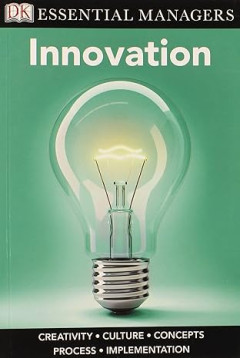
E-book DK Essential Managers: Innovation
Think outside the box and get results with Essential Managers: Innovation. This book will give you all the tools you'll need to succeed.
- Edisi
- -
- ISBN/ISSN
- 9780756655556
- Deskripsi Fisik
- 74 halaman, ilus.
- Judul Seri
- -
- No. Panggil
- 060 BES d
E-book A History of Force Feeding : Hunger Strikes, Prisons and Medical Ethic…
n March 2013, a group of detainees at Guantánamo Bay Detention Camp, Cuba, went on hunger strike. At the height of their protest, 106 individuals were refusing to eat. For detainees incarcerated for over a decade without charge or trial, food refusal offered a potent way to rebel. Having been stripped of their capacity for political communication and placed …
- Edisi
- -
- ISBN/ISSN
- 9783319311135
- Deskripsi Fisik
- 265 hlm
- Judul Seri
- -
- No. Panggil
- 943.9 MIL a

E-book Encyclopedia of Cold War Espionage, Spies, and Secret Operations
Previously unknown operations and new names continue to surface in the Encyclopedia of Cold War Espionage, Spies, and Secret Operations. This new edition contains updated information on Cold War spying, with over 350 A?Z main entries (over thirty of them new) biographical sketches, and an updated bibliography. In support of the entries the book includes useful tools: a complete chronology of si…
- Edisi
- -
- ISBN/ISSN
- 9781936274253
- Deskripsi Fisik
- 603 halaman
- Judul Seri
- -
- No. Panggil
- 327.12 TRA e
E-book The Talent Code: Greatness Isn't Born. It's Grown. Here's How.
What is the secret of talent? How do we unlock it? In this groundbreaking work, journalist and New York Times bestselling author Daniel Coyle provides parents, teachers, coaches, businesspeople—and everyone else—with tools they can use to maximize potential in themselves and others. Whether you’re coaching soccer or teaching a child to play the piano, writing a novel or trying to impro…
- Edisi
- -
- ISBN/ISSN
- 9780553906493
- Deskripsi Fisik
- 257 halaman
- Judul Seri
- -
- No. Panggil
- 153.9 COY t

E-book Creating the University of the Future: A Global View on Future Skills …
This open accesspublication presents a global panorama of institutional strategies, academic programs, scholarly insights as well as teaching and learning practices taking stock of the Future Skills Turn taking place in higher education. Future Skills have evolved to be one of the most important priorities for the development of higher education institutions globally. Students and graduates lea…
- Edisi
- -
- ISBN/ISSN
- 9783658429485
- Deskripsi Fisik
- 634 halaman
- Judul Seri
- -
- No. Panggil
- 378 EHL c
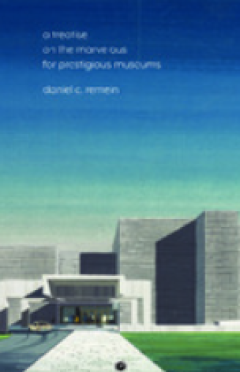
E-book Treatise on the Marvelous for Prestigious Museums
Wrapped in modernist architect Marcel Breuer’s 1971 addition to the Cleveland Museum of Art, A Treatise on the Marvelous for Prestigious Museums considers the global ecological catastrophe by way of a speculative address to the art museums of the future, revisiting mid-century modes of site-specificity and speculative collage as utopian practices for the present. Written over the course of a …
- Edisi
- -
- ISBN/ISSN
- 9781947447592
- Deskripsi Fisik
- 112 hlm
- Judul Seri
- -
- No. Panggil
- 821 REM t
E-book The Global Smartphone : Beyond a youth technology
ato san from Japan is a 90-year-old master of flower arrangement (ike-bana). She is still practising and also teaches her traditional craft from her Kyoto home. In the three years since she obtained a smartphone, it has become central to her work and life. Sato san arranges her students’ lessons via the messaging application LINE, on which she has over 100 …
- Edisi
- -
- ISBN/ISSN
- 9781787359611
- Deskripsi Fisik
- 323 hlm
- Judul Seri
- -
- No. Panggil
- 384.6 DAN t
E-book Sustainable Rice Straw Management
Rice straw is a residual byproduct of rice production at harvest. The total biomass of this residue depends on various factors such as varieties, soils and nutrient man-agement and weather. At harvest, rice straw is piled or spread in the field depending on the harvesting methods, using stationary threshers or self-propelled combine harvesters, respectively. The amount of rice straw t…
- Edisi
- -
- ISBN/ISSN
- 9783030323738
- Deskripsi Fisik
- 199 hlm
- Judul Seri
- -
- No. Panggil
- 333.7 ALL s
E-book Star Chamber Matters : An Early Modern Court and Its Records
The court of Star Chamber remains notorious even now: commentators sometimes invoke its name to suggest that a judicial body or legal action is not quite lawful, something secretive and illegitimate. The court provoked concern in its own time, too, though its vilification deepened after its death. With roots in the mid fourteenth century, St…
- Edisi
- -
- ISBN/ISSN
- 9781912702909
- Deskripsi Fisik
- 233 hlm
- Judul Seri
- -
- No. Panggil
- 347.01 KES s
E-book Essentials of Ecology, 5th Edition
G. Tyler Miller's worldwide bestsellers have evolved right along with the changing needs of your diverse student population. Focused specifically on energizing and engaging all your students, Miller and new coauthor Scott Spoolman have been at work scrutinizing every lineenhancing, clarifying, and streamlining to reduce word density as well as updating with the very latest environmental news an…
- Edisi
- -
- ISBN/ISSN
- 9780495-557951
- Deskripsi Fisik
- 383 halaman, ilus.
- Judul Seri
- -
- No. Panggil
- 577 MILL e
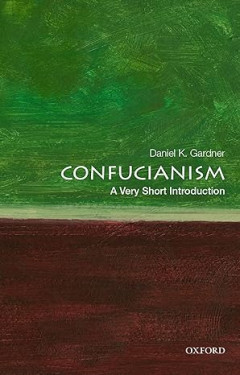
E-book Confucianism: A Very Short Introduction
To understand China, it is essential to understand Confucianism. First formulated in the sixth century BCE, the teachings of Confucius would come to dominate Chinese society, politics, economics, and ethics. In this Very Short Introduction, Daniel K. Gardner explores the major philosophical ideas of the Confucian tradition, showing their profound impact on state ideology and imperial government…
- Edisi
- -
- ISBN/ISSN
- 9780195398915
- Deskripsi Fisik
- 153 halaman
- Judul Seri
- -
- No. Panggil
- 181.112 GAR c
E-book Comics Beyond the Page in Latin America
ver the past two decades Latin America has seen an expansion in the publication and consumption of comics. This renaissance is benefiting from transnational dialogues and exchanges: in 2017, for example, the publishing house :e(m)r;, based in Rosario, Argentina, produced a groundbreaking compilation of comics by artists from over 10 Latin American …
- Edisi
- -
- ISBN/ISSN
- 9781787357549
- Deskripsi Fisik
- 246 hlm
- Judul Seri
- -
- No. Panggil
- 741.5 AGU c
E-book HBR's 10 Must Reads on MANAGING YOURSELF
The path to your professional success starts with a critical look in the mirror. HBR's 10 Must Reads on Managing Yourself will inspire you to: stay engaged throughout your fifty-plus-year work life; tap into your deepest values; solicit candid feedback; replenish physical and mental energy; balance work, home, community, and self; spread positive energy throughout your organization; rebound …
- Edisi
- -
- ISBN/ISSN
- 9781422157992
- Deskripsi Fisik
- 216 halaman
- Judul Seri
- -
- No. Panggil
- 650 HAR h

E-book HBR's 10 Must Reads on MANAGING PEOPLE
Managing people is fraught with challenges?even if you're a seasoned manager. Here's how to handle them. If you read nothing else on managing people, read these 10 articles (featuring “Leadership That Gets Results,” by Daniel Goleman). We've combed through hundreds of Harvard Business Review articles and selected the most important ones to help you maximize your employees' performance.
- Edisi
- -
- ISBN/ISSN
- 9781422158012
- Deskripsi Fisik
- 228 halaman
- Judul Seri
- -
- No. Panggil
- 658.401 HAR h
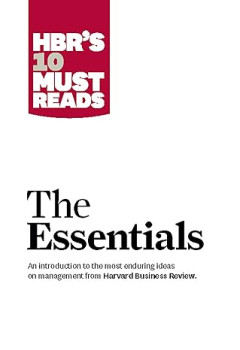
E-book HBR'S 10 Must Reads: THE ESSENTIALS
Change is the one constant in business, and we must adapt or face obsolescence. Yet certain challenges never go away. That's what makes this book "must read." These are the 10 seminal articles by management's most influential experts, on topics of perennial concern to ambitious managers and leaders hungry for inspiration--and ready to run with big ideas to accelerate their own and their compani…
- Edisi
- -
- ISBN/ISSN
- 9781422133446
- Deskripsi Fisik
- 235 halaman
- Judul Seri
- -
- No. Panggil
- 650.07 HAR h

E-book HBR's 10 Must Reads on MAKING SMART DECISIONS
Learn why bad decisions happen to good managers?and how to make better ones. If you read nothing else on decision making, read these 10 articles. We’ve combed through hundreds of articles in the Harvard Business Review archive and selected the most important ones to help you and your organization make better choices and avoid common traps.
- Edisi
- -
- ISBN/ISSN
- 9781422189894
- Deskripsi Fisik
- 193 halaman
- Judul Seri
- -
- No. Panggil
- 658.4 KAH h

E-book Happiness (HBR Emotional Intelligence Series)
Achieving happiness while excelling at your career. What is the nature of human happiness, and how do we achieve it in the course of our professional lives? And is it even worth pursuing? This book explores answers to these questions with research into how happiness is measured, frameworks for personal behaviors, management techniques that build happiness in the workplace—and warnings t…
- Edisi
- -
- ISBN/ISSN
- 9781633693210
- Deskripsi Fisik
- 599 halaman
- Judul Seri
- -
- No. Panggil
- 152.4 HAR h

E-book Resilience (HBR Emotional Intelligence Series)
- Edisi
- -
- ISBN/ISSN
- 9781633693241
- Deskripsi Fisik
- 101 halaman
- Judul Seri
- -
- No. Panggil
- 155.25 GOL r
- Edisi
- -
- ISBN/ISSN
- 9781633693241
- Deskripsi Fisik
- 101 halaman
- Judul Seri
- -
- No. Panggil
- 155.25 GOL r

E-book Not Written in Stone: Jews, Constitutions, and Constitutionalism in Ca…
Using long-ignored constitutions of various Jewish organizations, this unique book uncovers the political history of Canadian Jewry since its beginning during the 1700s. Building on the premise that Jews, since time immemorial, have written down their values and ideologies, this study effectively demonstrates how these writings record the principles and values that motivated a community.
- Edisi
- -
- ISBN/ISSN
- 9780776605456
- Deskripsi Fisik
- 295 halaman
- Judul Seri
- -
- No. Panggil
- 302.17 ELA n

E-book Literatures of the Hundred Years War
This volume demonstrates how the Hundred Years War (1337–1453) provides a necessary context for late medieval literature. Many of the major writers of the period, in a variety of different languages, lived either all or most of their lives under the shadow of war, including Geoffrey Chaucer, Christine de Pizan, Giovanni Boccaccio and Bridget of Sweden. The essays collected here investigate ho…
- Edisi
- -
- ISBN/ISSN
- 9781526141095
- Deskripsi Fisik
- 409 halaman.
- Judul Seri
- -
- No. Panggil
- 936 DAV l 002896-eB-0122

E-book Veneficium: Magic, Witchcraft and the Poison Path
In many esoteric traditions, there exists an iconic or linguistic corollary between the concepts of ‘poisoner’ and ‘sorcerer’, suggesting a sinistral magical kinship. Indeed, the use of plant, animal and mineral toxins is a strand of magic originating in remotest antiquity and reaching the present day. Beyond its mundane function as an agent of corporeal harm, poisons have also served a…
- Edisi
- -
- ISBN/ISSN
- 9781945147203
- Deskripsi Fisik
- 176 halaman
- Judul Seri
- -
- No. Panggil
- 133 SCH v

E-book Artificial Earth: A Genealogy of Planetary Technicity
Artificial Earth: A Genealogy of Planetary Technicity offers an intellectual history of humanity as a geological force, focusing on a prevalent contradiction in the Anthropocene discourse on global environmental change: on the one hand, it has been argued that there are hardly any pristine environments anymore, to the degree that the concept of nature has lost its meaning; while on the other, t…
- Edisi
- -
- ISBN/ISSN
- 9781685711306
- Deskripsi Fisik
- 349 halaman, ilus.
- Judul Seri
- -
- No. Panggil
- 522.19 AND a
E-book Wildland Fire Smoke in the United States : A Scientific Assessment
Humans have a long history of using fire and it is difficult to separate humaninfluence from the natural occurrence of fire on the landscape (Pyne1997). Forcenturies, Native Americans used fire as a tool for multiple purposes, includingagriculture, managing wildlife habitat and hunting grounds, and cultural practices.As a result of lightning fires and Native American burning, as well as agricul…
- Edisi
- -
- ISBN/ISSN
- 9783030870454
- Deskripsi Fisik
- 346 hlm
- Judul Seri
- -
- No. Panggil
- 577 JAF w
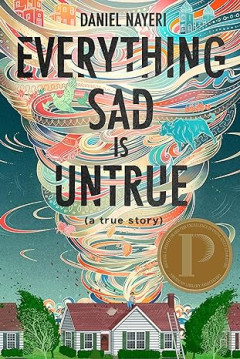
E-book Everything Sad Is Untrue: (a true story)
A sprawling, evocative, and groundbreaking autobiographical novel told in the unforgettable and hilarious voice of a young Iranian refugee. It is a powerfully layered novel that poses the questions: Who owns the truth? Who speaks it? Who believes it?
- Edisi
- -
- ISBN/ISSN
- 9781646140022
- Deskripsi Fisik
- 269 halaman
- Judul Seri
- -
- No. Panggil
- 155.25 NAY e
E-book R Programming: A Step-by-Step Guide for Absolute Beginners
R is both a programming language and an environment used in data analytics, statistical computing, and scientific research. It is amongst the best programming languages for researchers, data analysts, statisticians, and marketers. They use R to retrieve, clean, analyze, visualize and then present their data. Some of the reasons behind the increasing popularity in the use of R are an easy to use…
- Edisi
- -
- ISBN/ISSN
- 9781696769648
- Deskripsi Fisik
- 145 halaman, ilus.
- Judul Seri
- -
- No. Panggil
- 005.13 BEL r
E-book Masterpieces of the J. Paul Getty Museum : European Sculpture
I forget who first jokingly defined sculpture as something you bump into when you step back to look at a painting. I n any case, like most witticisms, this one contains a germ o f truth: both the general public and scholars pay more attention to painting than to sculpture. There are undoubtedly many reasons for this. We are a society geared to experiencing things on a flat plane rather than in …
- Edisi
- -
- ISBN/ISSN
- 0892365137
- Deskripsi Fisik
- 130 hlm
- Judul Seri
- -
- No. Panggil
- 735.21 ANG m
E-book Human Histology : Manual of Practicals
In Medicine, the samples use to come from patients from whom a portion of tissue is extracted, which is called a biopsy. They also come from material obtained by surgical treatment (surgical specimens) and, of course, from people who have died of some type of disease and whose family authorizes the autopsy to be performed (clinical autopsy). Many of the studies are carried out using extensions …
- Edisi
- -
- ISBN/ISSN
- 97884913194257
- Deskripsi Fisik
- 125 hlm
- Judul Seri
- -
- No. Panggil
- 611 HIL h
E-book Strategi Transformasi Digital Kesehatan 2024
Proses integrasi data pelayanan kesehatan yang lebih sederhana, nyatanya memiliki banyak tantangan. Banyaknya aplikasi kesehatan yang terbangun oleh pemerintah pusat, daerah, maupun pihak swasta menjadi tantangan dalam menuju integrasi sistem data kesehatan.Tantangan utama dalam membangun data kesehatan nasional adalah lebih dari 80% fasilitas pelayanan kesehatan di Indonesia saat ini belum te…
- Edisi
- -
- ISBN/ISSN
- 9786233013031
- Deskripsi Fisik
- 80 hlm
- Judul Seri
- -
- No. Panggil
- 610.7 RAC s
E-book Hieroglyphic Egyptian: An Introduction to the Language and Literature …
All examples in this grammar and all of the hieroglyphic exercises that conclude the lessons are based on sentences that occur in the extant corpus of Middle Egyptian literature. Often, however, I have simplified the original constructions or substituted vocabulary and phrases introduced in this book for the more diffuse material of the sources. Where writings were abbreviated, I have sometimes…
- Edisi
- -
- ISBN/ISSN
- -
- Deskripsi Fisik
- 564 hlm
- Judul Seri
- -
- No. Panggil
- 493.1 SEL h
E-book Indonesia Energy Transition Outlook 2023
This boom in coal exports endangered Indonesia’s energy supply. To secure its national coal supply for power system, the government sets a Domestic Market Obligation (DMO) of USD 70/tonne, 3 times lower than the global price. There are also subsidies for other fossil fuels, such as the public fund’s allocation of IDR 77.5 trillion for subsidizing fuel oil and LPG in 2022. Due to such regula…
- Edisi
- -
- ISBN/ISSN
- -
- Deskripsi Fisik
- 122 hlm
- Judul Seri
- -
- No. Panggil
- 531.6 BAG i

E-Book National Security Intelligence and Ethics
This volume examines the ethical issues that arise as a result of national security intelligence collection and analysis. Powerful new technologies enable the collection, communication, and analysis of national security data on an unprecedented scale. Data collection now plays a central role in intelligence practice, yet this development raises a host of ethical and national security problems, …
- Edisi
- -
- ISBN/ISSN
- 9781000504422
- Deskripsi Fisik
- 336 halaman
- Judul Seri
- -
- No. Panggil
- 172.4 MILL n
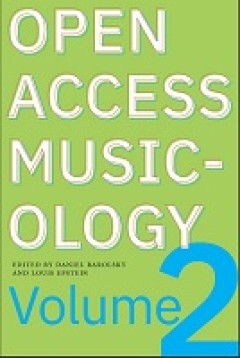
E-Book Open Access Musicology: Volume 2
Open Access Musicology (OAM) publishes peer-reviewed, scholarly essays primarily intended to serve students and teachers of music history, ethno/musicology, and music studies. The constantly evolving collection ensures that recent research and scholarship inspires classroom practice. OAM essays provide diverse and methodologically transparent models for student research, and they introduce diff…
- Edisi
- -
- ISBN/ISSN
- 9781643150499
- Deskripsi Fisik
- 202 halaman
- Judul Seri
- -
- No. Panggil
- 780.1 EPS o
Edisi Kolektor Stephen Hawking : A Mind Without Limits (Apa yang diajarkan sa…
Lihatlah ke bintang-bintang di atas, bukan ke kakimu di bawah. Pahami apa yang kau lihat, dan bertanyalah tentang apa yang membuat Alam Semesta ini ada. Bertanyalah." - Stephen Hawking.
- Edisi
- -
- ISBN/ISSN
- 9786024411015
- Deskripsi Fisik
- 21 x 28 cm; 97 hlm
- Judul Seri
- -
- No. Panggil
- 051 BEN e
E-book Everything Flows : Towards a Processual Philosophy of Biology
his book is a venture in the metaphysics of science, the exploration of the most basicfeatures of the world implied or presupposed by science. One of its main aims is todemonstrate the fundamental importance of such an investigation. Getting this verygeneral picture right makes a real difference to whether we do the science well andunderstand properly what it tells us. The particular metaphysic…
- Edisi
- -
- ISBN/ISSN
- 9780198779636
- Deskripsi Fisik
- 403 hlm
- Judul Seri
- -
- No. Panggil
- 570.1 AND e
 Karya Umum
Karya Umum  Filsafat
Filsafat  Agama
Agama  Ilmu-ilmu Sosial
Ilmu-ilmu Sosial  Bahasa
Bahasa  Ilmu-ilmu Murni
Ilmu-ilmu Murni  Ilmu-ilmu Terapan
Ilmu-ilmu Terapan  Kesenian, Hiburan, dan Olahraga
Kesenian, Hiburan, dan Olahraga  Kesusastraan
Kesusastraan  Geografi dan Sejarah
Geografi dan Sejarah